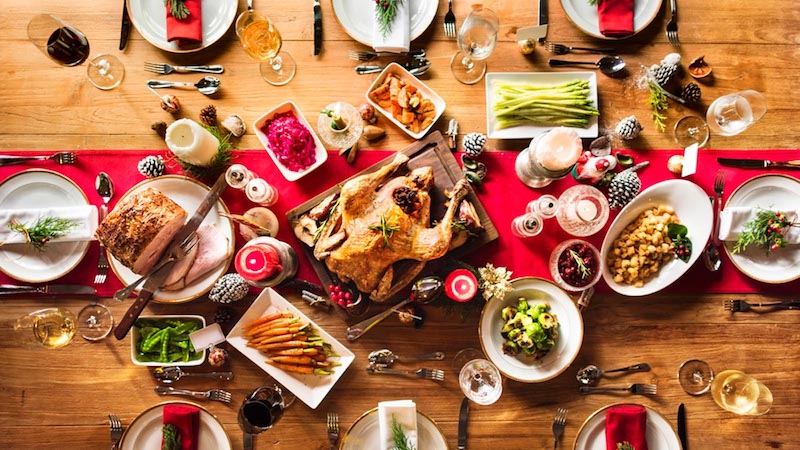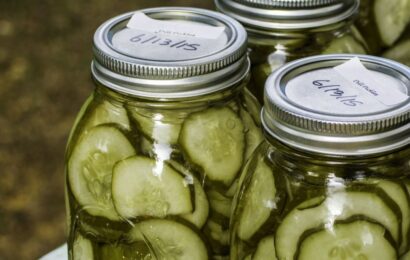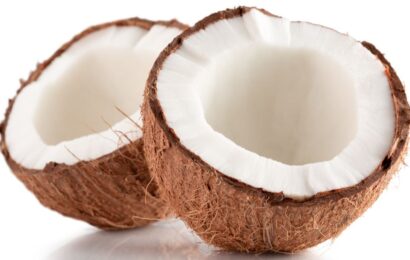The holidays are traditionally a time for celebrating with gifts, the company of loved ones, and of course, plenty of food and drink (maybe a little too much food and drink). Heartburn, upset stomach, diarrhea, and constipation are often the price we pay for decking the halls during the most wonderful time of the year. And digestion issues can result from factors other than food: anxiety, stress, lack of sleep, and illness are culprits, too. Get your tummy back on track and in top shape for the new year. Here’s how!
Heartburn
That burning sensation you have in your chest, perhaps accompanied by belching; an acidic, sour taste in your throat; and bloating is called heartburn. Despite its name, heartburn has nothing to do with your heart; rather, it stems from food and stomach acid backing up (refluxing) into the esophagus.
The esophagus and the stomach are separated by the lower esophageal sphincter, a valve that keeps the stomach’s contents in the stomach. When you eat or drink, the sphincter relaxes and opens to allow foods and liquids to enter the stomach; it then tightens up.
Foods that contribute to heartburn
Certain foods and beverages can weaken the sphincter or cause it to open when it shouldn’t. These include:
- Fatty foods
- Spicy foods
- Citrus fruits
- Tomatoes and tomato products
- Onions
- Peppermint and spearmint
- Chocolate
- Salt
- Alcoholic beverages
- Milk
- Carbonated beverages
- Caffeinated beverages
Other factors that contribute to heartburn
Other factors that can trigger heartburn include:
- Eating large, fatty meals
- Pregnancy
- Being overweight
- Smoking
- Hiatal hernia
- Using anti-inflammatory medicines and aspirin
- Wearing tight clothing and belts
If you have frequent episodes of heartburn, this may be gastroesophageal reflux disease (GERD), which is a condition that can damage the esophagus. Medication and sometimes surgery are needed to treat GERD.
What you can do to prevent or treat heartburn
At its worst, heartburn is painful. At the very least, it’s uncomfortable and can put a damper on holiday celebrations. Plus, the burning sensation can make it difficult to sleep.
You can prevent or ease heartburn without medication by trying the following:
- Eat slowly and forgo greasy, fatty foods.
- Avoid lying down for a few hours after eating.
- Try not to eat late at night.
- Sleep on your left side.
- Elevate the head of your bed by inserting a wedge between your mattress and box spring.
- Loosen up your clothing.
- Skip the sparkling water and choose flat water, instead.
- Sip on some ginger tea.
- Avoid exercising after you eat (although a stroll around the block is fine).
There are numerous medicines that can provide fast relief in case the above remedies don’t work. Some of them are available over the counter, others by prescription. Antacids (e.g., Tums, Rolaids, Maalox), acid blockers (e.g., Pepcid, Zantac, Tagamet), proton pump inhibitors (e.g., Prevacid, Prilosec, Nexium), and prokinetics (Reglan, Propulsid) are options. It’s best to ask your doctor about which of these medicines would be best for you, as some of them can interfere with other medications, like blood thinners; they may also have serious side effects.
To get cutting-edge diabetes news, strategies for blood glucose management, nutrition tips, healthy recipes, and more delivered straight to your inbox, sign up for our free newsletters!
Upset stomach
The aftermath of holiday festivities is often an upset or queasy stomach. Stomach “upset” might mean a stomachache, nausea, bloating, belching, and even vomiting. Why is your stomach so temperamental? Here are a few of the common culprits:
Common causes of upset stomach
Stress
Sure, holidays are fun and exciting, but they’re also stressful. Shopping, cooking, and maintaining COVID-19 protective measures are only some of the reasons for stress. Feeling sad, lonely, and depressed brings on stress, too. Stress affects people in different ways, but it can impact your digestive tract big time, causing indigestion and nausea.
Rich and fatty foods
Holiday goodies taste just fine going down but they can be the gift that keeps on giving. High-fat treats can cause fullness, bloating, and nausea due to cholecystokinin, a hormone, and may exacerbate existing medical conditions such as gallbladder disease, gastroparesis, irritable bowel syndrome, and pancreatitis.
Alcohol
For most people, drinking alcohol in moderation is fine, but too much may cause stomach pain, nausea, and vomiting. Alcohol can increase acid production in the stomach, causing irritation of the stomach’s lining (called gastritis).
Food poisoning
Food contaminated by bacteria, parasites, or viruses can lead to stomach cramps, nausea, vomiting, diarrhea, headaches, fever, and chills. Foods that may be affected are undercooked meats or eggs, raw fish and shellfish, fruits and vegetables that aren’t well washed, raw dairy products, and foods not stored or reheated to the right temperature. In addition, food prepared by someone who hasn’t properly washed their hands or who has used cooking utensils that aren’t fully cleaned can lead to food poisoning.
What you can do to treat an upset stomach
An upset stomach and nausea will likely resolve on their own, especially if they are triggered by holiday foods and/or overeating or drinking. Sipping on water, clear broth, and ginger tea can help, as can eating easy-to-digest foods, such as dry toast, crackers, or white rice. Steer clear of dairy foods, high-fiber foods (beans, fruits, vegetables), and high-fat foods (fried foods, red meat, cheese).
If pain, nausea, or vomiting continue or worsen, or if you develop a fever, be sure to seek medical attention.
Diarrhea
Diarrhea, which is loose, watery bowel movements three or more times in one day, can stem from a number of issues:
- Contaminated food or water
- Viruses, including the flu and SARS-CoV-2 (the cause of COVID-19)
- Parasites
- Certain medicines, such as antibiotics
- Food intolerances, such as lactose intolerance
- Digestive disorders, such as Crohn’s disease, ulcerative colitis, and irritable bowel syndrome
Foods that can cause diarrhea
In addition to the above, the foods that you eat can be the catalyst for diarrhea. These include:
- Fried or fatty foods
- Gluten
- Spicy foods
- Caffeine
- Dairy foods
- Sugar
- Sugar alcohols (e.g., sorbitol, mannitol, xylitol)
- Alcohol
What you can do to treat diarrhea
Diarrhea as a result of eating trigger foods or beverages will likely run its course. It’s important to replace fluids lost by diarrhea; for the most part, sipping on water, decaf tea, or broth will do the trick. As your symptoms improve, you can start eating soft, bland foods, like toast, crackers, rice, and applesauce. If your diarrhea is severe, let your doctor know — you may need an oral rehydration solution, such as Pedialyte or even IV fluids.
If you have vomiting and/or diarrhea, be sure to pay careful attention to your blood glucose levels. Check your blood sugars more often. If you are unable to eat, you may need to alternate sugar-free beverages with beverages that contain sugar, such as ginger ale or a sports drink (e.g., Gatorade). Call your doctor if you are having trouble keeping your blood sugars in a safe range.
Constipation
Constipation, defined as having fewer than three bowel movements a week, is another “side effect” of holiday celebrations. Why? Getting off track with your daily schedule (including your bathroom schedule), eating fewer high-fiber foods, not drinking enough fluids, being less active than usual, and even stress can all contribute to constipation.
Signs of constipation
Besides having fewer than three bowel movements in a week, other signs that you might be constipated include:
- Stools that are hard, dry, or lumpy
- Difficulty or pain with passing stools
- Feeling like you haven’t completely passed the stool
Causes of chronic constipation
Constipation can be chronic for some people as a result of:
- Certain medications (e.g., antacids, anticonvulsants, calcium channel blockers, diuretics, opioids)
- Iron supplements
- Pregnancy
- Travel
- Autonomic neuropathy (damage to the nerves that control bodily functions)
- Multiple sclerosis
- Parkinson’s disease
- Stroke
- Spinal cord injury
- Weakened pelvic muscles
- Irritable bowel syndrome
- Intestinal obstruction
Tips to combat constipation
However, if you’re constipated due to the holiday season, you can get back on track (and feel more like yourself) with the following tips:
- Fit in more fiber with vegetables, fruit, legumes, and whole grains.
- Drink plenty of water, especially when you ramp up your fiber intake.
- Eat yogurt with active cultures.
- Move more — physical activity helps strengthen the muscles in your intestines.
- Drink some coffee, which stimulates the muscles in the digestive tract (avoid coffee if it triggers other digestive symptoms).
- Pay attention to the “urge” to have a bowel movement.
- Eat breakfast. Your colon is most active in the morning, so give it some fuel!
Some people take fiber supplements, such as psyllium (found in Metamucil and Konsyl) or methylcellulose (Citrucel). Others take various types of laxatives, or use stool softeners or suppositories. Talk with your doctor before using fiber supplements or laxatives. If you still can’t seem to get regulated, your doctor may prescribe medication to help alleviate the constipation.
Want to learn more about staying healthy during the holidays? Read “Healthy Holiday Meals,” “Holiday Health Tips: Overcoming Hurdles Using Self-Care Behaviors,” “Master Holiday Health Pitfalls,” and “Diabetes, Alcohol, and the Holidays.”





